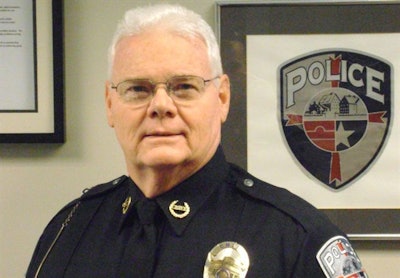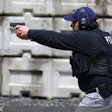 Photo courtesy of William Harvey.
Photo courtesy of William Harvey.
Let's get one thing straight—it's often how you live your daily life that tells the story of you as a mentor. Your actions speak louder than your words. These traits are often caught not taught. I've drawn similarities to leaders in my life—their traits and actions that they lived every day. I've narrowed them down to five areas for your consideration.
When I studied my mentors, they were diligent, insightful, consistent, natural, and personal in their daily actions on and off duty. Each also had traits or skill sets that made them a value to the lives of those around them. These are the basics.
When I stated that they were diligent, they were like clockwork. They did the important things every day—not when someone was watching them but all of the time. I draw a comparison to children and Santa Claus—the closer to the arrival of the old elf, the better their behavior. Here's a reality check. Were you naughty or nice in the summer or just before the holiday? What do you do every day? The little things your recruits or staffers observe about you are really that important.
Leaders provide insight at all times. They seem to live for the teaching moments of life. It is easy to scream at someone who makes a mistake. It takes patience to seize a mistake and turn it into a learning experience. The leader who takes you aside for a teaching moment is a real leader. One of the goals of a leader is to minimize mistakes and maximize performance. If they observe a mistake, they'll correct it to help make you a better performer.
They tend to their squad or students all of the time. They're consistent! This shouldn't be confused with diligence. Great skills come from positive habits. For each task, there's a logical, step-by-step process that ensures accuracy and completeness. They don't take a short cut or settle for "good enough for government work." There's a method and purpose to all they do. They give the same consistent performance to every case, every class, and every moment.
Leadership appears natural to them; they rarely struggle. Some develop into good leaders by working, toiling, and nearly suffering with the mantle of leadership. For most great leaders, it's almost like walking or riding a bike. It's a natural motion for them to take the reins and lead. Everyone struggles from time to time; the mentors will never let you see them sweat. Their natural ability garners confidence in others.
A personable demeanor is one of the great traits of a mentor. They know you well. They speak to you in person, when offering guidance rather than through a memo or group letter. The best mentors lean over; speak with an insightful tone; and then give you the nod. Personal communication creates ownership between the two of you. They will say things like, "I am here to make you successful" or "There are no 'I's' in success."
There are certainly other traits of a great mentor. They all have their own mannerisms from their linage of successful people. If you want to raise the bar to become the best Field Training Officer (FTO), supervisor, or instructor, give these five a try and the success will be yours.

















